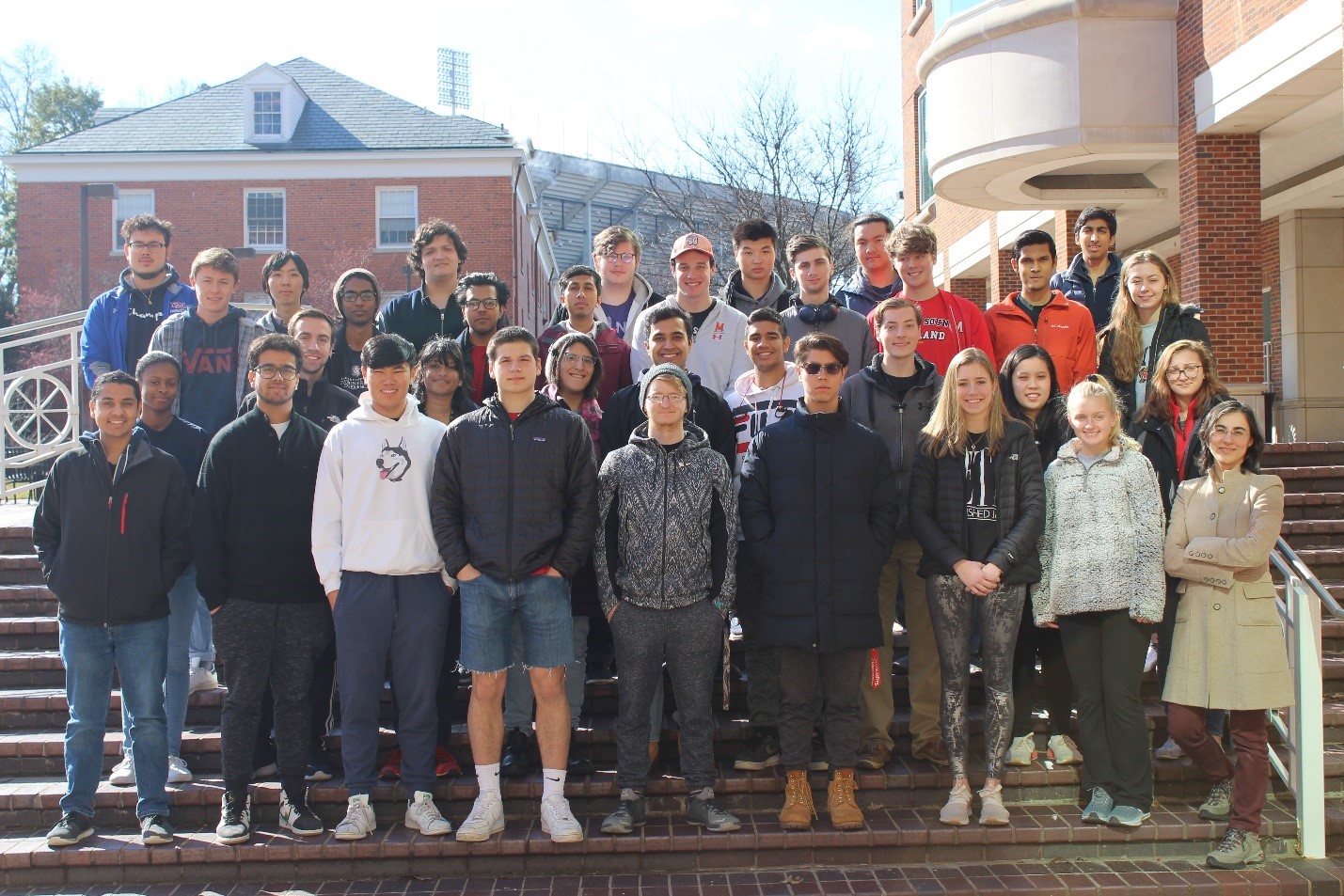 2019 FIRE Simulating Particle Detection students with their research leader, Dr. Muge Karagoz.
2019 FIRE Simulating Particle Detection students with their research leader, Dr. Muge Karagoz.
The University of Maryland’s Physics Department has joined The First-Year Innovation & Research Experience (FIRE) program through the launch of the Simulating Particle Detection research group. The group is run by Dr. Muge Karagoz in collaboration with two Experimental High Energy Physics faculty members: Professor Sarah Eno and Assistant Professor Alberto Belloni, both of whom are members of the Compact Muon Solenoid (CMS) experiment at the Large Hadron Collider based at CERN in Geneva, Switzerland.
FIRE is a three-semester program with second and third semesters concentrating on research in a specific discipline. FIRE provides students with authentic research experience and a broad mentorship with the goal of influencing academic success and personal development. The FIRE Simulating Particle Detection brings undergraduate students from a wide variety of majors into the field of experimental particle physics, concentrating on the simulation of cutting-edge, high-energy particle detectors, such as the planned upgrade of the CMS detector.
In Simulating Particle Detection, students go through all aspects of conducting research. They start with a literature search on particle physics and detectors, as well as training on computing and coding. They then move on to data analysis and presentation of their results. For their research projects, they form teams giving them a chance to experience the pursuit of collaborative achievements. As a natural outcome of performing research, especially in the context of an international, big-data experiment like CMS, the students also learn skills such as adaptability, and strategies such as trouble-shooting.
The research group launched in the spring of 2019, with 33 undergraduate students, and has just completed its first semester. This was made possible through the collaborative efforts of the FIRE program operated through the Office of the Senior Vice President and the Provost, the Department of Physics, and the Experimental High Energy Physics Group. The research group was also greatly helped by highly-dedicated undergraduate research assistants and peer mentors. Peer Mentors are second-year FIRE students who return to serve as mentors for the first-year students in FIRE research groups, through the Teaching and Learning Transformation Center’s Academic Peer Mentoring Program. The Simulating Particle Detection will continue with current students in the fall, with the next group of first-year participants to begin in Spring 2020.
More information on the Simulating Particle Detection research group can be found on the FIRE program’s web site (http://fire.umd.edu/). Additional information on the Experimental High Energy Physics Group can be found on the Department of Physics website (https://umdphysics.umd.edu/research/research-areas/high-energy-physics.html).